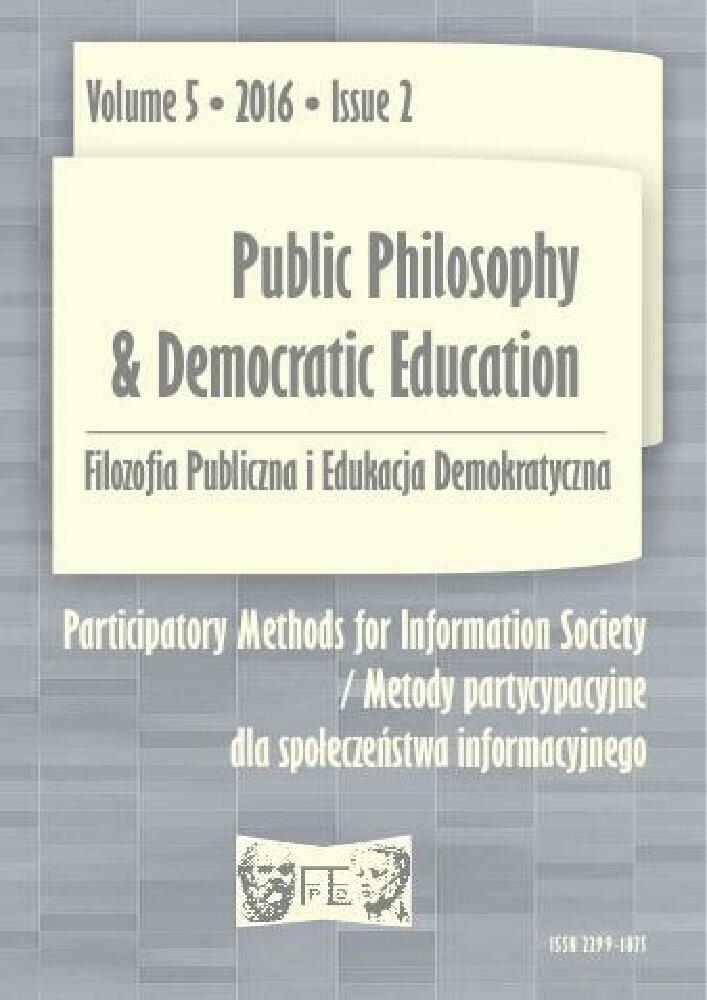Abstrakt
Society takes place in cities and shapes them. The “city” is commonly attributed with certain objectified qualities, daily practices, perceptions and symbolic readings and is strongly linked to institutional arrangements. As various transformation forces and processes can be observed in contemporary cities, the question arises: what instruments and possibilities can be identified for steering urban structures and development by means of urban policy? The current shift away from a top down oriented city administration and planning towards the participatory governance suggests that cities are facing new challenges and requirements that are closely associated with a political dimension. The possibilities of influencing and steering urban development by urban planning and policy and participation as one element of those control options will be discussed in this paper. In order to understand the role and scope of new urban governance the societal context that frames contemporary cities will be outlined. Starting from the characteristics of new urban governance modes it will be discussed why governance and participation can be understood as reaction to the network society and its challenges of the established nation-state based democracy, traditional power relations and legitimation of political processes and institutions.
Bibliografia
Banse, G. (2008). Visionen der Informationsgesellschaft – Gestern, Heute, Morgen. In: G. Banse, A. Kiepas (Eds.), Visionen der Informationsgesellschaft 2016 (pp. 33-52). Berlin: Trafo.
Beauregard, R. A. (2005). Planning and the Network City: Discursive Correspondences. In: L. Albrechts, S. Mandelbaum (Eds.), The Network Society: A New Context for Planning (pp. 24-33). New York: Routledge.
Begg, I. (1999). Cities and Competitiveness. Urban Studies, 36(5-6), 795-810.
Bell, D. (1979). Die nachindustrielle Gesellschaft. Reinbek bei Hamburg: Rowohlt.
Blackman, T. (1995). Urban Policy in Practice. New York: Routledge.
Castells, M. (2004). The Network Society. A Cross-Cultural Perspective. London: Edward Elgar.
Elcock, H. (2008). Regional Futures and Strategic Planning. Regional & Federal Studies, 18(1), 77-92.
Ellis, D., Allen, D., Wilson, T. (1999). Information Science and Information Systems. Conjunct Subjects Disjunct Disciplines. Journal of the American Society for Information Science, 50(12), 1095-1107.
Frey, O. (2008). Die Amalgame Stadt. Orte. Netze. Milieus. Wiesbaden: VS Verlag für Sozialwissenschaften.
Friedmann, J. (2011). Insurgencies: Essays in Planning Theory. London–New York: Routledge.
Graham, S. (2005). Strategies for Networked Cities. In: L. Albrechts, S. Mandelbaum (Eds.), The Network Society: A New Context for Planning (pp. 95-109). New York: Routledge.
Griffiths, R. (1998). Making Sameness: Place Marketing and the New Urban Entrepreneurialism. In: N. Oatley (Ed.) Cities, Economic Competition and Urban Policy (pp. 41-57). London: Paul Chapman Publishing Ltd.
Gualini, E. (2005). Reconnecting Space, Place, and Institutions: Inquiring into “Local” Governance Capacity in Urban and Regional Research. In: L. Albrechts, S. Mandelbaum (Eds.), The Network Society: A New Context for Planning (pp. 284-306). New York: Routledge.
Hajer, M., Zonneveld, W. (2000). Spatial Planning in the Network Society – Rethinking the Principles of Planning in the Netherlands. European Planning Studies, 8(3), 337-355.
Harding, A. (1997). Urban Regimes in a Europe of the Cities? European Urban and Regional Studies, 4(4), 291-314.
Harvey, D. (1989). From Managerialism to Entrepreneurialism: The Transformation in Urban Governance in Late Capitalism. Geografiska Annaler, 71B(1), 3-17.
Häußermann, H., Siebel, W. (2004). Stadtsoziologie. Eine Einführung. Frankfurt am Main: Campus Verlag.
Healey, P. (2003). The New Institutionalism and the Transformative Goals of Planning. In: N. Verma (Ed.), Institutions and Planning (pp. 61-87). New Brunswick, NJ: Center for Urban Policy Research.
Healey, P. (2004). The Treatment of Space and Place in the New Strategic Spatial Planning in Europe. International Journal of Urban and Regional Research, 28(1), 45-67.
Healey, P. (2005). Collaborative Planning: Shaping Places in Fragmented Societies. Basingstoke: Palgrave Macmillan.
Heitzman, J. (2004). Network City. Planning the Information Society in Bangalore. New Delhi: Oxford University Press.
Jensen-Butler, C., Shachar, A., van Weesep, J. (Eds.) (1997). EuropeanCities in Competition. Avebury: Aldershot.
Jessop, B. (2000). The Future of the Capitalist State. Cambridge: Polity Press.
Le Galès, P. (2002). European Cities: Social Conflicts and Governance. Oxford University Press: Oxford.
Mintzberg, H. (1994). The Rise and Fall of Strategic Planning: Reconceiving the Roles for Planning, Plans, Planners. New York: Free Press.
Oatley, H. (1998). Cities, Economic Competition and Urban Policy. London: Paul Chapman Publishing Ltd.
Parkinson, M., Hutchins, M., Simmie, J., Clark, G., Verdonk, H. (Eds.) (2004). Competitive European Cities: Where Do The Core Cities Stand? London: European Institute for Urban Affairs.
Radzik-Maruszak, K., Bátorová, M. (2015). Citizen Participation and Engagement in Urban Governance: Perception of Finnish and Polish Local Officials. NISPAcee Journal of Public Administration and Policy, 8(1), 85-110.
Rhodes, R. A. W. (1996). The New Governance: Governing without Government. Political Studies, 44(4), 652-667.
Rhodes, R. A. W. (1997). Understanding Governance: Policy Networks, Governance, Reflexivity and Accountability. Buckingham: Open University Press.
Sehested, K. (2001). Investigating urban governance – from the perspective of policy networks, democracy and planning. In: Research Papers from the Department of Social Sciences, 1(1). Roskilde: Roskilde University.
Sehested, K. (2009): Urban Planners as Network Managers and Metagoverners. Planning Theory & Practice, 10(2), 245-263.
Strom, E., Mollenkopf, J. (2004). Vom Reden und Handeln – Diskurs und Stadtentwicklung in New York und Berlin. In: W. Siebel (Ed.), Die europäische Stadt (pp. 284-300). Frankfurt am Main: Suhrkamp.
Swyngedouw, E. (1997). Neither Global Nor Local: “Glocalisation” and the Politics of Scale. In: K. Cox (Ed.), Spaces of Globalization: Reasserting the Power of the Local (pp. 137-166). New York–London: Guilford/Longman.
Throgmorton, J. A. (1992). Planning as Persuasive Storytelling about the Future: Negotiating an Electric Power Rate Settlement in Illinois. Journal of Planning Education and Research, 12(1), 17-31.
Licencja
Prawa autorskie (c) Autorzy zachowują prawa autorskie i prawa do publikacji swoich artykułów w tym czasopiśmie, przyznając czasopismu prawo do ich rozpowszechniania na warunkach CC BY-NC-ND 4.0
